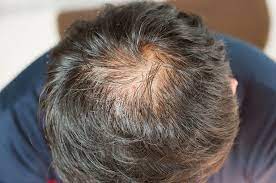DNA testing has both benefits and drawbacks. Based on DNA evidence, law enforcement has successfully solved innumerable cold cases as well as active investigations. The issue is that DNA testing is not completely dependable, like practically everything else. When someone is unfairly condemned due to inaccurate DNA results or interpretations, a miscarriage of justice may have occurred.
Complex litigation is required to challenge a conviction that was incorrectly made on the basis of flawed DNA evidence. You could benefit from the assistance of a criminal defense lawyer in Washington if you were entangled in a web of shaky forensic evidence. Let’s investigate the question of whether DNA testing is trustworthy in criminal situations.
Does DNA Evidence Indicate a Single Person’s Guilt?
Actually, no. DNA testing nearly never conclusively proves that the suspect or defendant committed the crime, despite what you might see on television. DNA evidence is much more trustworthy when used to rule out a suspect than when used to assign blame. To put it another way, DNA evidence may show that Suspect A may have committed the crime but Suspect B is not likely to have done so.
Can DNA testing be employed to perplex a jury?
Yes. DNA testing, for instance, could show that the defendant has particular genetic markers present in only 3% of the population. In the US, there are more than 330 million people, making up that ostensibly small group of 9.9 million people. A conviction cannot be supported by the elimination of 97% of the population.
Does DNA Testing Identify a Single Member of a Family?
A match to someone’s DNA could be discovered, but it could also be to any number of that person’s near relatives. It could be simple to find one person guilty of a crime that was committed by that person’s brother, father, cousin, or son it can also be found through a Face DNA App. The jury is not always informed of that particular fact.
Use of Damaged DNA Samples or Partial DNA Profiles by Law Enforcement:
Yes, and when they do, errors in judgment may occur. In court-admissible DNA testing, a DNA sample can be harmed by moisture, high or low temperatures, or both. A DNA sample might also get contaminated with time.
The fundamental markers required for a trustworthy, Court ordered paternity test in EL PASO TX a DNA profile will not be present in full in a damaged DNA sample. In an ideal scenario, researchers could evaluate a whole DNA sample and identify at least 16 distinct features of the person’s DNA. Samples that aren’t full might merely mention a person’s hair color or another distinguishing characteristic.
Can the Wrong Person Be Identified from a Full DNA Sample?
Yes. DNA from multiple people could be present in the sample. One DNA profile might be created if the lab or the evidence team at the scene unintentionally mixed together samples from different people. That profile can be wildly off.
How “CSI Effect” May Lead to Erroneous Convictions:
The public has high regard for forensic evidence. It seems to be both a little magical and scientific at the same time. We are accustomed to forensic evidence serving as the irrefutable proof that convicts guilty individuals because of television shows.
The current circumstance has two issues. One is that if there isn’t any DNA evidence, juries might be reluctant to find someone guilty. Two, forensic evidence receives greater weight from jurors than it should. The best that DNA evidence can do is suggest that a certain person is more likely to have committed a crime than a stranger off the street. DNA results should not be the only piece of evidence used to prove guilt.
To safeguard your legal rights if you are facing criminal accusations that may involve the use of forensic evidence, you should contact a criminal defense lawyer in Washington as soon as possible. If you require legal assistance, get in touch with Jennifer right now.
The purpose of this post is to provide my viewpoint, ideas, and some general knowledge about many facets of criminal cases. It is not legal advice and is not meant to be a replacement for legal counsel. You should speak with a lawyer to get legal counsel specific to your position and case.


















+ There are no comments
Add yours